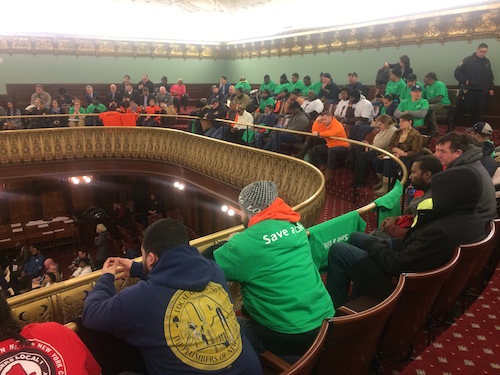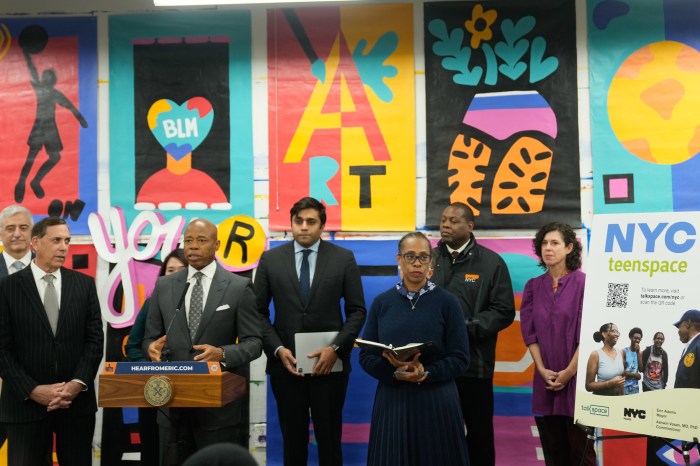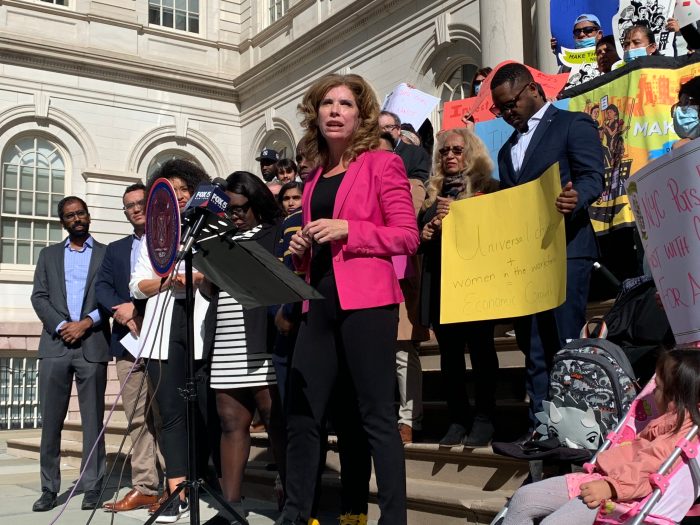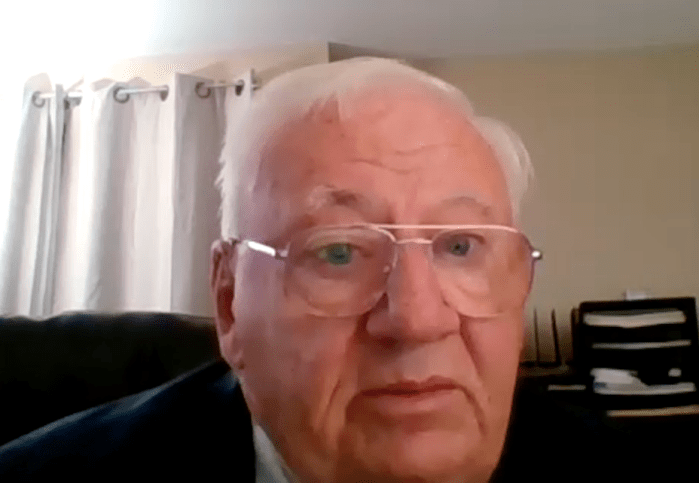Thousands of union and non-union construction workers lined the streets of lower Manhattan and the seats at city hall to battle over Intro 1447, or the Apprenticeship Safety Bill, that would require construction workers to complete an apprenticeship program for any construction work sites of 10 stories or larger and demolition work sites of four stories or larger.
The proposed bill is part of a larger construction safety legislation package that is looking to curb construction worker deaths and injuries. It comes as both the City Council and the construction industry are trying to deal with a rising spike with on the job construction deaths – from 17 in the city in 2011 to 25 in 2015
Apprenticeship programs are largely run by building trade unions which have a history of not accepting minorities into their programs, as previously reported. Unions say that history has changed and they now include many minorities.
But non-union workers, which include immigrants and minority groups, feel that the legislation is not about safety but monopolizing jobs exclusively for union labor workers.
A group of more than 50 public housing NYCHA tenants leaders pointed out that just in the past year, Local 28 of the Sheet Metal Workers was forced to pay $12.7 million in back pay to hundreds of black and Hispanic workers as the result of a decades-old lawsuit over racial bias.
Martin Allen, President of People for Political & Economic Empowerment, reiterated this sentiment, “If the council passes this bill saying it’s about safety, it’s not about safety. It’s about giving them [unions] control. Safety is being tightened all over the city, everybody wants to save lives. When union workers die on a job it’s 10 or 12 at a time. They’re talking about a non-union worker in a two-story building. Yeah, you have people that aren’t trained properly because it’s a small contract and people are trying to cut corners to make money. It’s things that they are using to try to get control, but only to keep people from the city, especially people of color, out of work.”
Allen is a member of the construction laborer union Local 79 out of Brooklyn, but said he never found job on a site through the union. He is African-American and has been in construction since getting out of jail back over 20 years ago.
But Gary LaBarbera, president of the 100,000 member Building and Construction Trades Council of Greater New York, called all the package of bills critically important in protecting the lives of construction workers across the five boroughs. “We can no longer tolerate irresponsible developers and contractors who are putting profits over the safety of workers. This must end now,” LaBarbera said.
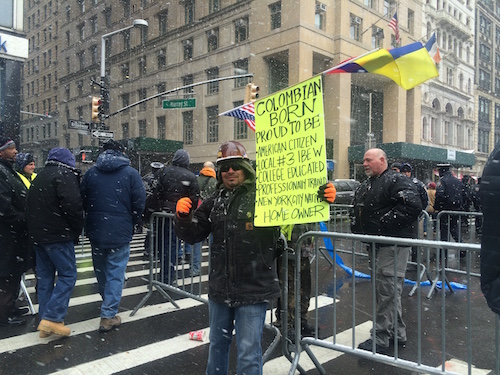
Union workers argue that it is the non-union workers lack of safety training and awareness on a job site that puts all of the other workers in danger and that mandating certain training courses would ensure more safety and less job site injuries.
“I hope it’s going to save a lot of lives. We’ve had too many deaths in the last couple of years. Safety is a major issue especially when it comes to non-union jobs because they go totally against safety measures,” said Billy Ingle, a member of the International Brotherhood of Electrical Workers (IBEW) Local 3, and a third generation construction worker, who has been in construction for 18 years.
“Right now in this city non-union has a large percentage of the work. If you look at the borough of Brooklyn, 90 percent of overall construction is non-union. Non-union has an overwhelmingly large percentage of work, but the safety standards are not being followed. The fact is that they have the majority of the deaths there. They aren’t getting any safety training and they do not enforce safety regulations,” said Ingle.
At the hearing city lawmakers had an opportunity to hear from both union and non-union workers who gave their personal testimony regarding worker safety on a job site. One of the panelists was Abdul Cokku-Abu, a 8-year veteran of LMN Builders, who insisted that he has the proper training to work on a construction site and has the same safety awareness as anyone else from a union apprenticeship program. Cokku-Abu said he went through a year long training program through LMN before being allowed to start work on any of their construction sites.
“They [LMN Builders] take could care of us. Our company works safe and is safe every year. We never ever have something dangerous at a job site. Our company is always making sure that everybody is safe at the job site. If we do something and we don’t like it, we stop whatever we’re doing, I call the safety manager, tell him, ‘Please we need this [safety precautions to be taken] or go to my boss. We are safe every day.’”
City lawmakers agreed that safety is a big issue when it comes to construction and that more regulations need to be put in place. Many cited the success of Mayor Bill de Blasio’s Vision Zero Action Plan, which he introduced in 2014 due to the high rate of pedestrian fatalities to accidents with cars. The program has decreased pedestrian injuries and deaths due to changes in street designs, increased police enforcement of traffic regulations and new legislation among other things.
One panelists, union worker Ulysses Williams from Local 79, brought over 20 different safety certification cards that he has been mandated to have through his union that included, two OSHA training cards among many more. The Occupational Safety and Health Administration is an organization through the Department of Labor that trains, educates and enforces health and safety regulations on work sites.
City Council member Jumaane Williams (Flatbush, East Flatbush, Midwood), chair of the Building Committee and a co-sponsor of the measure, has said the measure is still a work in progress and wanted the hearing to all sides, including unions, non-unions, construction organizations and administrative officials in the field could testify.
The bill was not voted on at the meeting.


